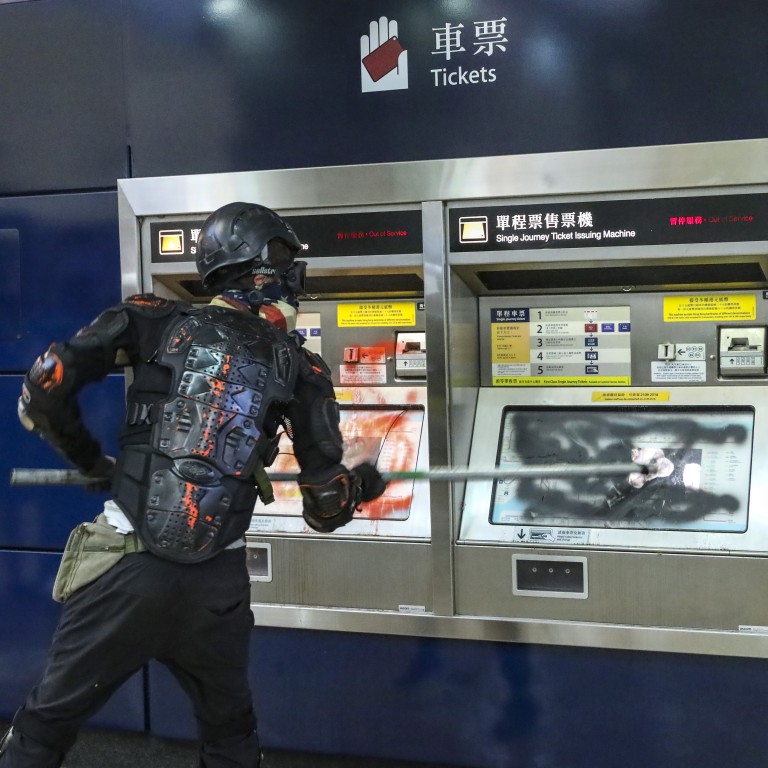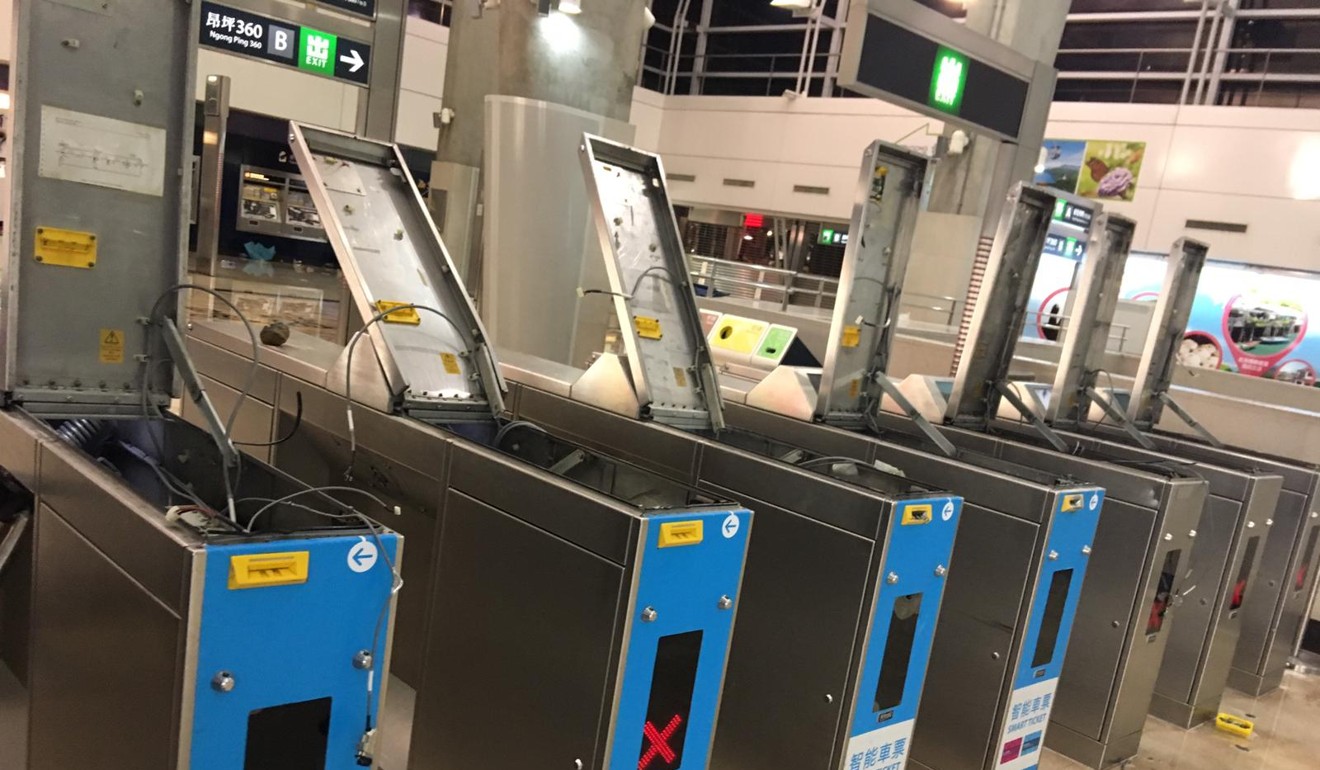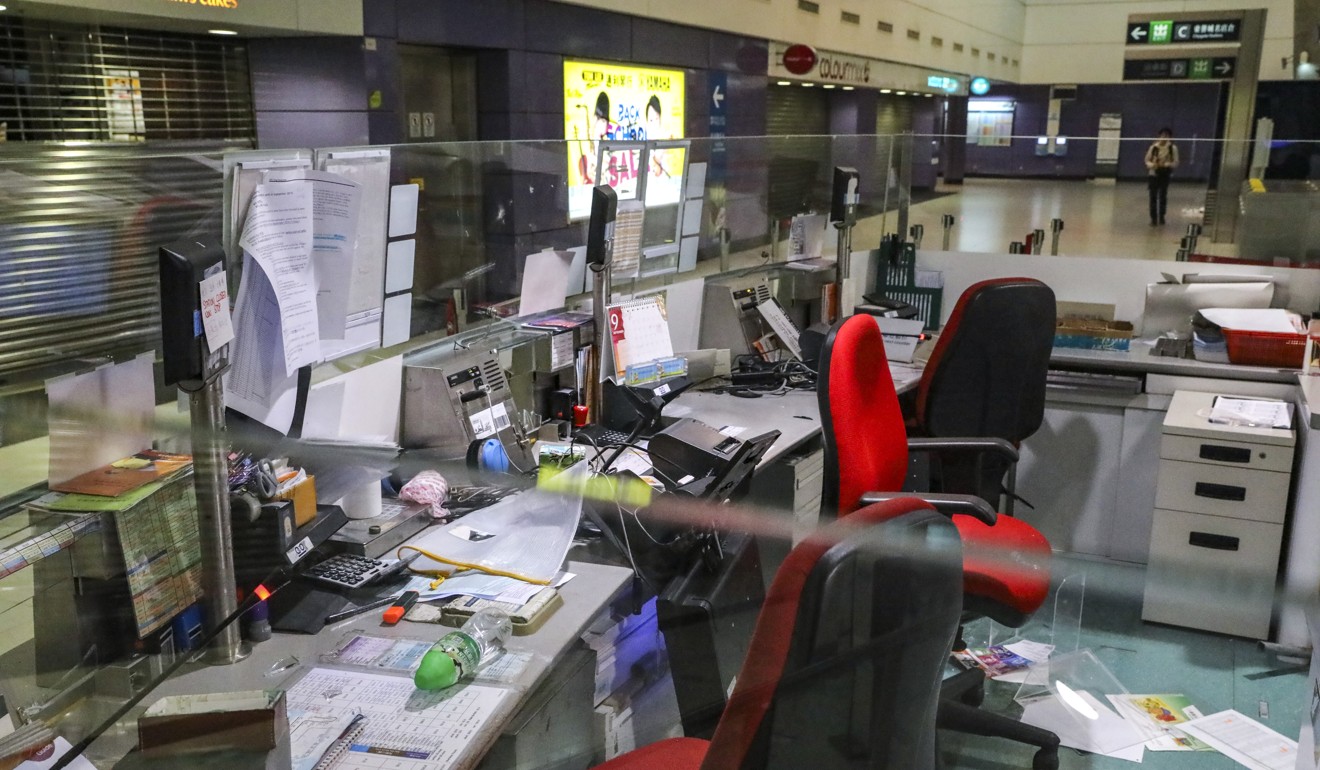
Hong Kong’s MTR Corporation pays heavy price for protesters’ wrath with damage estimate at HK$50 million
- Radical protesters now see MTR Corp as enemy in league with the government and police – and destruction has followed
- One former railway executive says city’s railway giant is caught between all sides and ‘absolutely in a no-win situation’
Hong Kong’s railway operator has paid a steep price for incurring the wrath of anti-government protesters – many of whom accuse the public transport provider of being in lockstep with the government and police.
Francis Lun Sheung-nim, the chief executive of Geo Securities Ltd, on Tuesday said he would put a “sell” rating on MTR stock.
In recent weeks, the MTR Corporation has had its services disrupted, stations vandalised and its corporate image tarnished. Over the weekend, 39 railway stations – amounting to more than 40 per cent of the heavy rail stations in Hong Kong – were severely damaged.
The destruction included CCTV cameras, ticketing machines, glass doors, turnstiles and station control rooms. Protesters were accused of looting fire extinguishers and defacing stations.

Lun, the stockbroker, said his move to downgrade MTR was prompted in part by the company’s decision to shut down the Airport Express on Saturday as protesters tried to paralyse all transport links to Hong Kong International Airport.
“I really blame the MTR for starting the airport fiasco. Many people had to walk for hours to get out of the airport, like refugees. I think that was irresponsible. The MTR corporate image suffered irreparable damage,” he said.
“The problem is – like the police – the MTR has become the enemy of the people. I would put a ‘sell’ rating on MTR because I don’t have any confidence in its management.”

He said there were no bus services to get travellers out of the airport because the Transport Department advised against such a move over safety concerns.
Lau made it clear that safety must take priority over providing transport, but Lun said the MTR needed to remember its responsibility to the public.
I think they have to put common sense before just blindly follow orders
“I think they have to put common sense before just blindly follow orders,” he said. “It’s a public service provider, it should never abandon people in the middle of nowhere.”
An insurance analyst, meanwhile, said he was not sure if the MTR Corp could claim insurance for its damaged facilities because political unrest might not be covered.

He said he felt for the railway giant because it was bound to anger one side of the city’s political divide.
“Sometimes it needs to close the station to address the safety concerns of its staff and this may cause people to have scuffles. If the MTR doesn’t call the police, there may be scuffles. But if it calls the police, there might be a chance of the force beating up innocent parties,” he said.
“I sympathise tremendously with the MTR which is absolutely in a no-win situation. It is caught between a rock and a hard place – damned if you do and damned if you don’t.”
Quentin Cheng Hin-kei, a spokesman for the Public Transport Research Team, said the MTR’s cooperation with the police had turned it into an enemy of the protesters.
“I think the MTR unnecessarily closed too many stations at one time and made unreasonable arrangement without valid reasons, causing great inconvenience to passengers and grievances from the protesters,” he said.
“I think it has overly catered to the demands of the police without exercising its professional judgment as a public service provider. Because of this, it has lost the trust of the public and also become the target of the protesters.”
“Now, people may think that taking the MTR is no longer safe, so fewer people will come out shopping and dining. If the MTR shops suffer, the MTR will be under pressure to cut rents,” he said.

